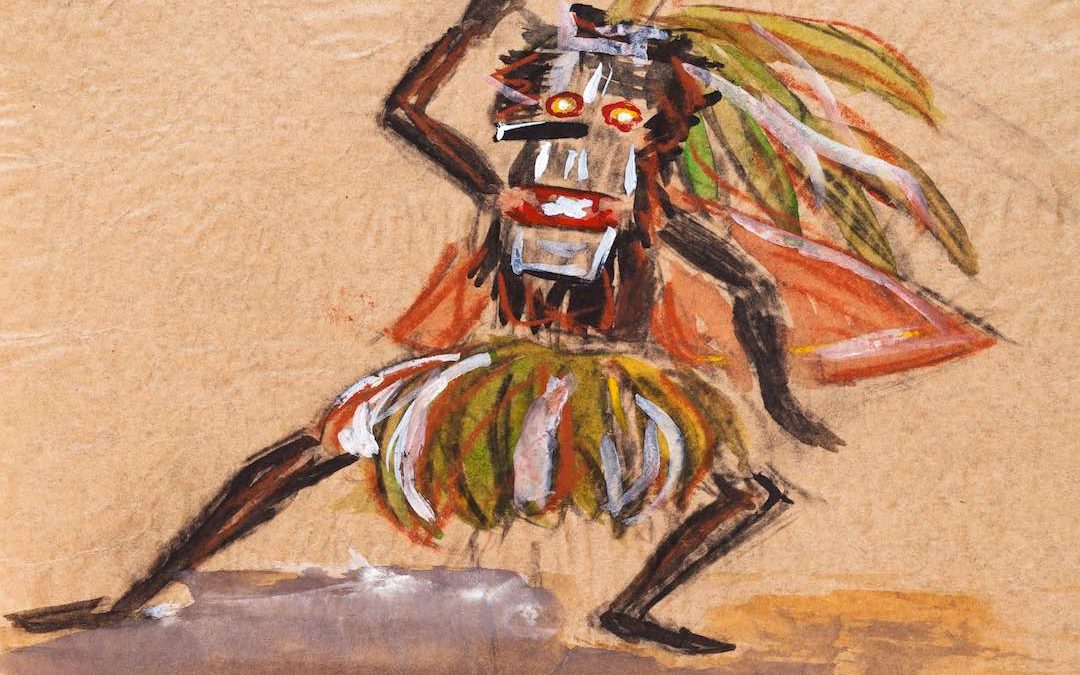Obeah is considered to be the oldest African-Creole religions in the Caribbean. Similar to Vodou, Santeria, Palo, and Hoodoo, it’s associated with folk magic and sorcery. Although banned in Jamaica since 1760, a few chosen individuals still practice this form of magic to this day. Now let’s talk some more about Obeah, its origins and practices, and its fate in current-day Jamaica.
What Is Obeah?
Obeah is one of the most obscure African practices of sorcery. People associate it with both white and black magic, and with charms and mysticism in general. Just as many other aspects of the African-Caribbean religiosity, practices include the veneration of the ancestors, animal sacrifice, spirit possession, and divination. However, we do not encounter a complex system or organized liturgy.
Close to witchcraft, Obeah also takes many elements from Shamanism. The practice of Shamanism involves reaching altered stated of consciousness to connect with the spiritual world and with nature. This is actually the core of Obeah. Shamanistic practices are used in the initial stages of obtaining knowledge, further developing into forms of worship similar to those found within Vodou.
An Obeahman (Obeah practitioner) is somewhat of a sorcerer or a combination of sorts between a voodoo witch doctor and root doctor. However, Obeah is largely regarded as an occult power, empowering spells for witchcraft and other forms of magic. Practitioners are believed to have an inherent gift of special powers, passed down from generation to generation. Otherwise, they must undergo a conversion that gives them the power of Obeah. To learn the tricks of the trade, an apprentice must first spend some time with an Obeah man or woman.
The Origins of Obeah
The generally accepted hypothesis traces Obeah to the traditions of the Igbo people, one of the largest ethnic groups in Africa. Slaves practicing different forms of religions and spiritual practices were taken from multiple African nations into parts of the Caribbean. As a result of their arrival, Obeah originated in Jamaica and other parts of the Caribbean.
We can trace the term “Obeah” in documents from the early 18th century. A letter from 1787, sent to an English newspaper, describes “Obiu-women” as interpreters of the wishes of the dead at a funeral in Jamaica. They were viewed as “Wise-women”, as explained in the letter’s footnote.
In 1818, Barbados passed an anti-Obeah law that forbade the possession of poisons. This was due to the fact that white arsenic had been found in the medicine chest of an Obeahman arrested in Jamaica in the 1860s. Laws against Obeah and Myal practices (an African-Jamaican form of divination largely practiced in Jamaica; similar to Obeah) in Jamaica as well. The British government of Jamaica had, in fact, sent many Myal practitioners to prison. Ironically, they position themselves as opponents to Obeah, which they view as being evil.
The Practices of Obeah
Clients usually seek a practitioner to cast spells and charms that may help them in their romantic relationships, legal troubles, gambling, and more. Different solutions are recommended depending on the type of problem that the client has. Such “treatments” include baths, healing prescriptions, massages, strategic placement of articles of clothing, and others.
We can safely say that the role of an Obeahman is that of a healer. In their capacity of healers, these individuals are often called upon to offer protection against spirits inhabiting our world. Obeah practitioners create charms or “fetishes”. These are inanimate objects that possess miraculous powers, and are either carried by the client for protection or are meant to be revered.
Obeah charms are typically parts of the human or animal body. They may also be objects of clothing or even dirt. Hair, in particular, is a powerful material for an Obeah fetish. These protection materials have the role of warding off duppies. The term “duppy” is the Caribbean equivalent of what we know as a ghost or a spirit. However, a duppy is not the soul of the person that passes into the afterlife. Instead, it’s the shadow that can inhabit certain locations.
Obeahman are also called upon to destroy Old Higue. This skin-shedding mythical creature sucks the breath from babies, which then die. Not only this, but the hag is also responsible for tragedies happening in the everyday life of inhabitants of the Caribbean islands. Old Higue can be destroyed by burning or damaging her skin so that she can no longer return to it. Obeah man and women may offer some sort of protection against this harmful creature.
Obeah in Jamaica Culture Today
For hundreds of years now, Jamaicans have been prohibited from practicing Obeah. Until recently, practicing this form of sorcery was punishable by imprisonment, flogging, and other penalties. However, the practices managed to survive in rural communities. Finding an Obeahman is quite easy when passing the hills of St. Mary, for example. This is due to the fact that, despite being outlawed since 1760, it has been decades since anyone was punished for practicing Obeah.
In the cities, hardly anyone believes in Obeah anymore. Nonetheless, practitioners have to come to the capital, Kingston, to stock up on the materials they need. Those interested can purchase the goods in downtown Kingston, and they include soaps, potions, candles, and other common items.
Over the years, the popularity of this type of religious practice has decreased. Consequently, finding a practitioner willing to reveal what they do is quite rare. Which is why chemists and pharmacists who sell the goods refuse to talk about their purpose to anyone who isn’t a true connoisseur. Even customers refrain from answering questions regarding their purchases.
Repealing the legislation against this religious practice is tough, although some politicians support it. In fact, former prime minister Edward Seaga believes that decriminalizing it will not make any difference in the everyday life of Jamaicans.
To Sum It All Up
Obeah’s history goes back to the enslaved Africans. They brought with them various spiritual practices to the Caribbean nations, including a belief in both white and black magic. This fascinating type of sorcery, shrouded by mystery, is a vital part of the Jamaican heritage. Being part of the folklore, this religious practice will survive regardless of the fact that many wish to extinguish it.

